The World Health Organization continues to support the Ministry of Health and Medical Services (MOHMS) in the health response to Cyclone Winston by strengthening the Ministry's health facilities. The most powerful cyclone ever recorded in the Southern Hemisphere ravaged Fiji on 20–21 February, leaving 44 dead, nearly 130 injured and 45 hospitalized.
The cyclone had a significant impact on the health system, damaging health facilities, disrupting health care services, resulting in lost medical supplies, and interrupting telecommunications, road and sea transportation, and water and energy supplies. At least 88 of the 214 health facilities throughout Fiji (41%) were damaged, and seven were so severely damaged that services were relocated to temporary locations.
MOHMS ensured medical evacuation for the people who sustained severe injuries, and immediately deployed teams to assess the damage to health facilities, completing a first round of rapid assessments in all affected areas. MOHMS, supported by WHO and other international partners, are now carrying out more in-depth assessments to inform and coordinate repairs. Efforts are focused on restoring all services for patients at damaged health facilities.
“The impact of the cyclone on health facilities in Fiji has been severe in some areas, but the Ministry of Health and Medical Services and the affected communities themselves quickly took steps to ensure the continuation of health services and begin the repair of infrastructure damage,” said Dr Liu Yunguo, WHO Representative in Fiji. “WHO and our other partners will continue to support the Ministry of Health and Medical Services in getting health services back up and running in all districts as soon as possible.”
Dr Liu visited a number of health facilities in Central Division on 11 March to survey the damage first-hand and offer support to the centers in need.
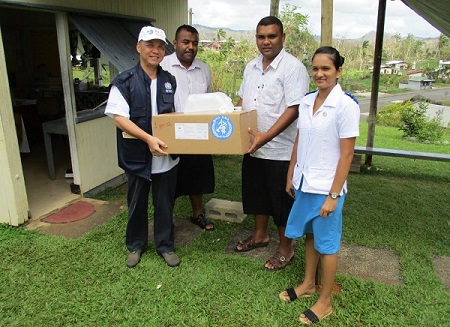
Dr Liu (left) delivers water purification tablets to Dr Pelasio Rounds, the Medical Officer in Charge, and nurse Sonam Chand at the Nayavu Health Centre. The center serves a community of nearly 6000 people and has been without clean water since the cyclone.
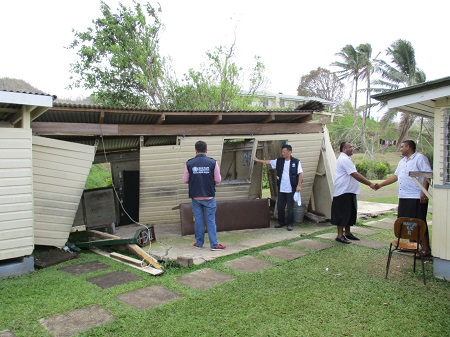
Dr Liu (right) examines the badly damaged patient area at the Nayavu Health Centre. The patient area was nearly destroyed by the cyclone. A temporary area for patients was set up nearby.
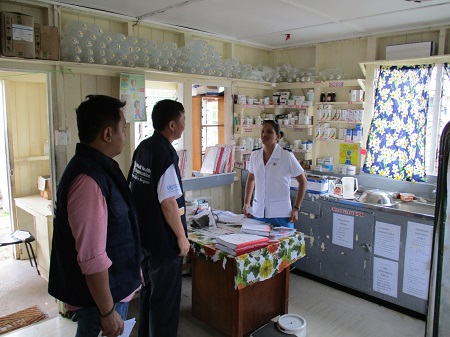
From Dr Liu (center) and Dr Roy Cosico (left) talk to nurse Sonam Chand about how the cyclone has affected the level of care at the Nayavu Health Centre, the status of medical supplies and if there are any outstanding needs. Fortunately, the center has been able to deliver services despite the contaminated water supply, damaged patient area and lost patient records.
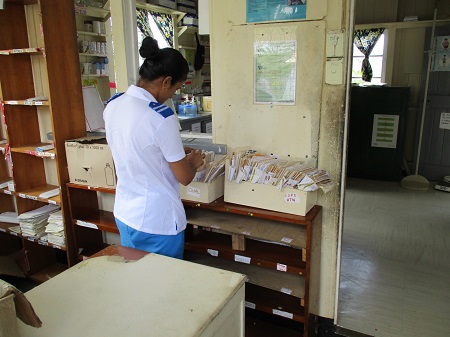
Nurse Sonam Chand reviews the few patient records that remain intact after the storm. The cyclone caused flooding that destroyed many records, leaving health center staff without the medical histories of many of their patients.
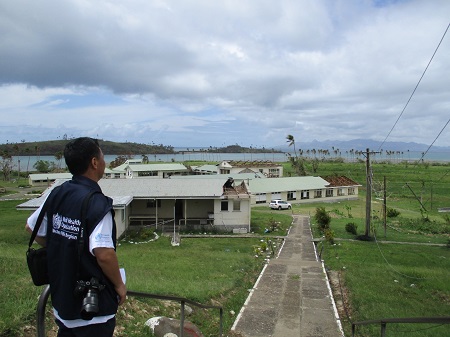
Dr Liu surveys the damage sustained at the Queen Victoria School Nursing Station. The cyclone tore the roofs off of several buildings on the campus, and both the school and nursing station remain shut down.
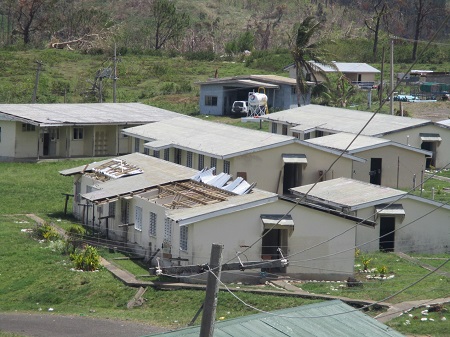
The Queen Victoria School Nursing Station served the 750 students who attended the school. Most buildings on the campus are unusable due to damage.

Staff at the Queen Victoria School Nursing Station was reassigned to the Tailevu Subdivisional Hospital to join its emergency response team.
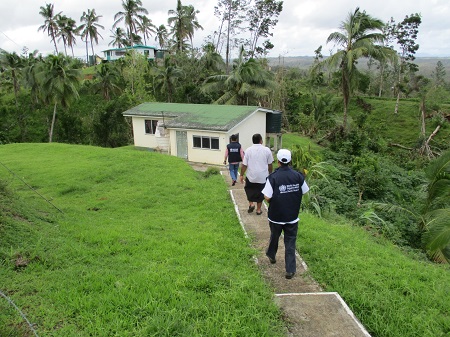
Dr Liu, (nearest) approaches the Tonia Nursing Station. Surrounded by twisted and fallen trees, this nursing center miraculously escaped damage. However, it has been without power since the cyclone and so patients are referred to the hospital for some services. The centre serves a community of about 940 people.
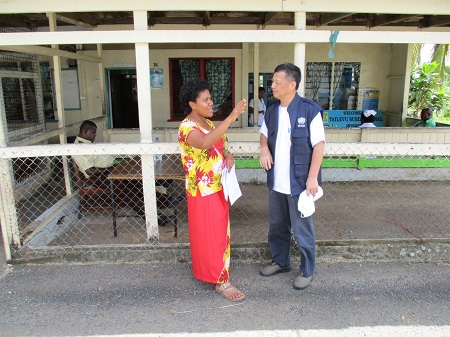
Dr Ilisapei Lasaro (left) describes to Dr Liu how the cyclone affected the Karovou Sub-Divisional Hospital and surrounding area, and how the facility is managing disease surveillance after the cyclone. The hospital serves about 8375 people in the community of Karovou.
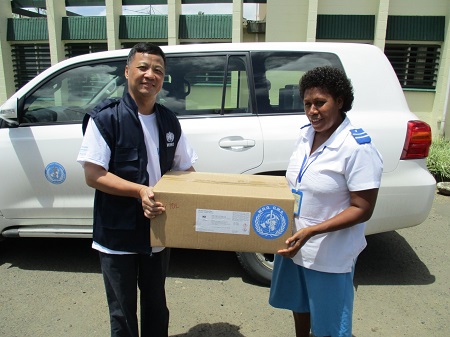
Dr Liu delivers water purification tablets to Asinate Biu Tikornaku, a nurse at the Korovou Sub-Division Hospital. The hospital has struggled with contaminated water since the cyclone, putting patients and staff at risk of disease.










